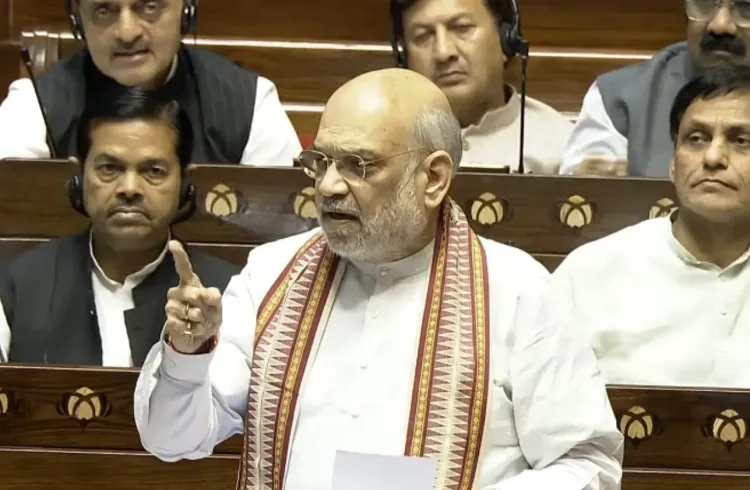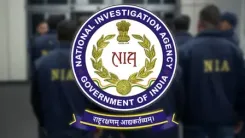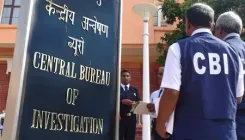Amit Shah Links Climate Change to Disasters

Synopsis
Key Takeaways
- Disaster management is linked to climate change.
- The Bill aims to enhance district-level capabilities.
- Financial resources will be decentralized.
- Shared responsibility exists between the Centre and states.
- Traditional knowledge and modern practices are both critical.
New Delhi, March 25 (NationPress) Union Home Minister Amit Shah presented the Disaster Management Amendment Bill in the Rajya Sabha on Tuesday. During the discussions, the Home Minister stressed that disasters are closely linked to climate change and highlighted the necessity of proactive measures to lessen its effects.
“The most effective way to avert disasters is to tackle climate change,” he stated.
In response to concerns expressed by various MPs regarding the Bill potentially undermining the federal framework, the Home Minister clarified that the amendments do not centralize authority. Instead, they aim to bolster disaster management capabilities at the district level.
“This Bill does not violate the federal structure. The primary responsibility for disaster management rests with the District Disaster Management Authority (DDMA), which functions under the state government,” he explained.
He further emphasized that financial resources for disaster response will also be provided at the state and district levels, ensuring a decentralized strategy.
Addressing claims of bias, the Home Minister remarked, “If there was bias, it would stem from the law established by the UPA government in 2005. We have maintained that framework. In fact, we have offered states greater financial support than what the Finance Commission recommended.”
The Home Minister asserted that disaster management is a collective responsibility between the Centre and the states. “Prime Minister Narendra Modi’s 10-point agenda on disaster risk reduction has been accepted by over 40 countries. This is not solely the Centre’s duty; it involves state governments, local bodies, and every citizen,” he stated.
Drawing from India’s rich traditions, the Home Minister noted, “Our commitment to climate preservation is longstanding. From the Yajurveda’s prayers for universal peace to the sophisticated disaster management practices observed in the Harappan and Mauryan civilizations, India has always acknowledged the bond between humanity and nature.”
The Home Minister also affirmed that while traditional knowledge is invaluable, modern scientific methods and global best practices must be incorporated. “This amendment reflects that equilibrium,” he added.
Earlier in the debate, Congress Rajya Sabha MP Neeraj Dangi criticized the proposed amendments, stating, “This Bill undermines federalism, overlooks the needs of local communities, and lacks a comprehensive approach to disaster risk management, including climate change adaptation and animal welfare.”









